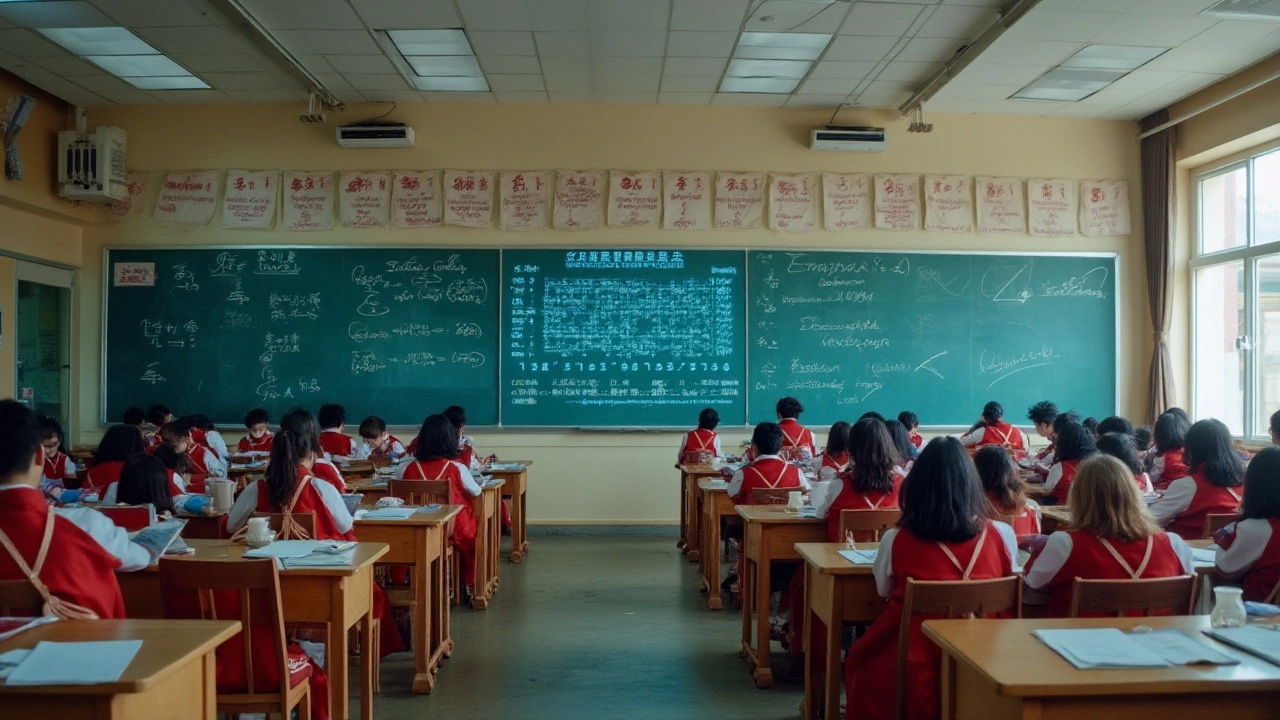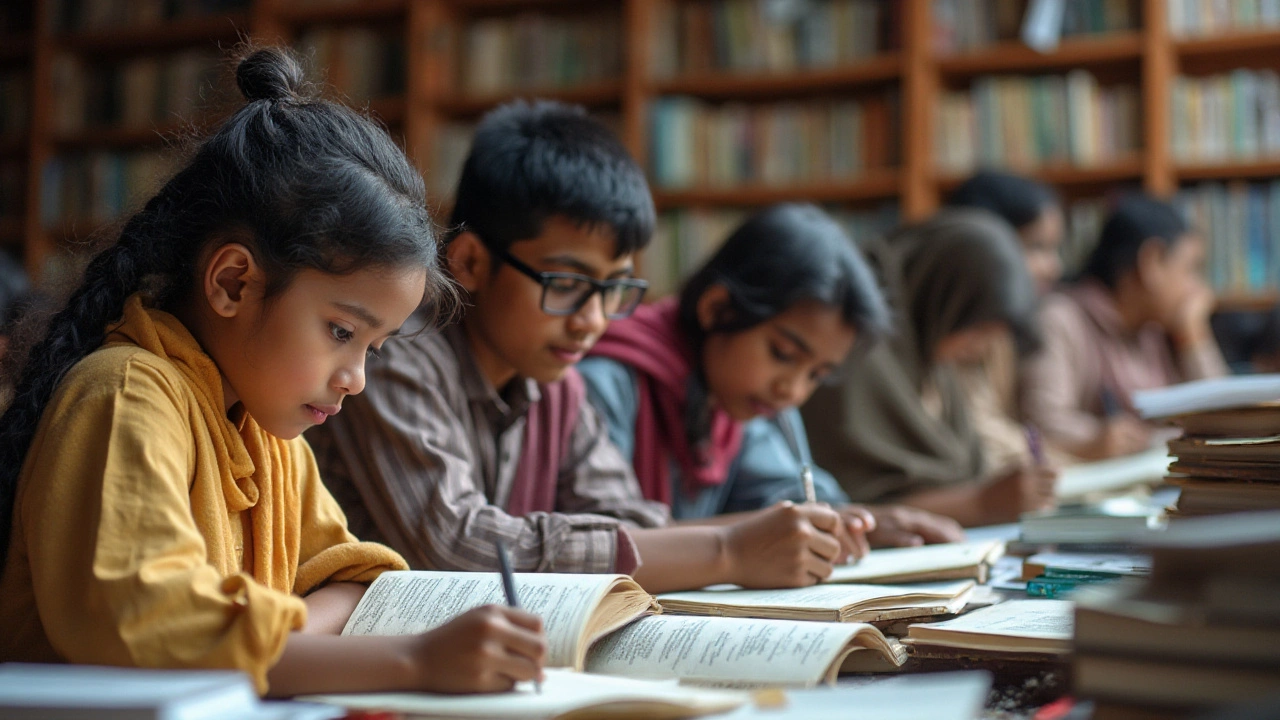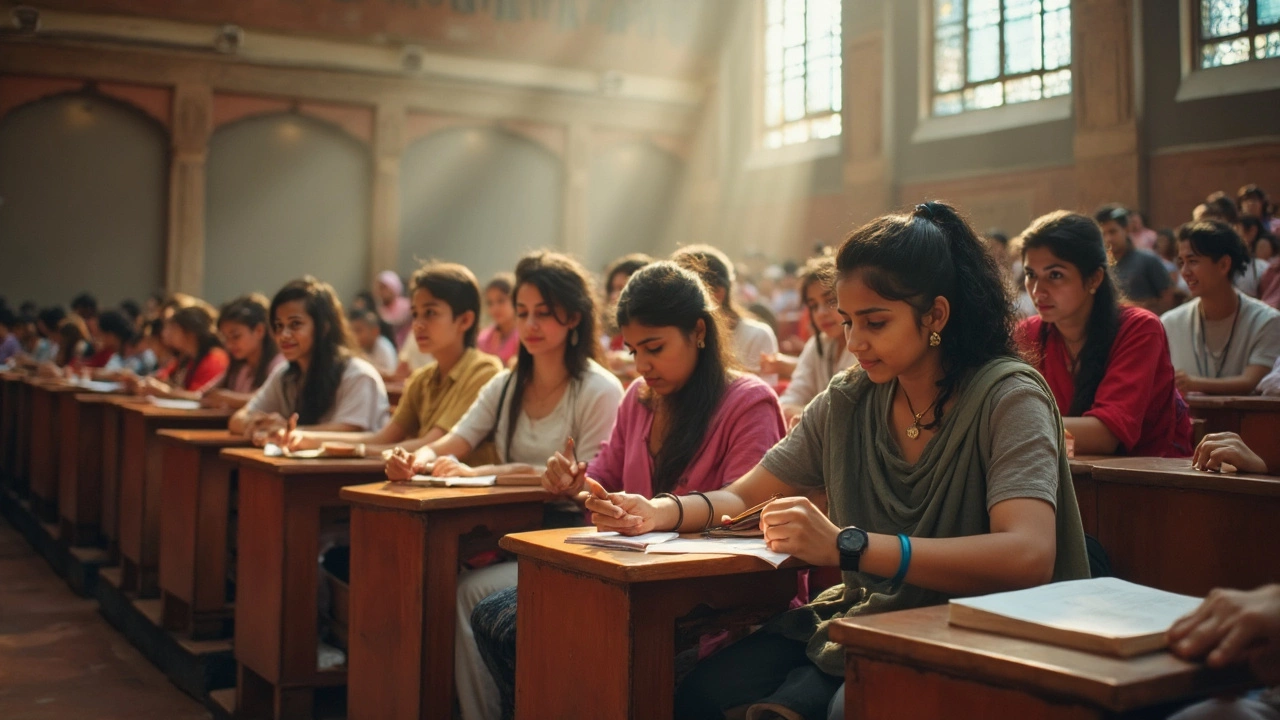Exams have long been the yardstick used by academic institutions to measure students' capabilities and their preparedness for future challenges. While many tests are simply hoops one must jump through in life, some exams stand out due to their extraordinary difficulty and the immense pressure they place on candidates.
Among these daunting academic challenges are three notorious exams that are recognized globally for their rigor and high stakes: the IIT-JEE in India, the Gaokao in China, and the CFA exams in the United States. Each presents unique challenges, from demanding intricate problem-solving skills to requiring intense strategic preparation. Aspiring candidates often find themselves grappling with not just academic hurdles but also the psychological endurance required to face these trials head-on.
- The Intensely Competitive IIT-JEE
- Navigating the Gaokao: China's College Entry Test
- CFA Exams: The Finance Sector's Everest
- Tips for Tackling Tough Exams Successfully
The Intensely Competitive IIT-JEE
The IIT-JEE, or the Indian Institutes of Technology Joint Entrance Examination, stands as one of the toughest exams in the world due to its challenging nature and extensive scope. It is the gateway to India’s most prestigious engineering institutes, the IITs, coveted for their excellence in developing top-tier graduates in science and technology. Each year, approximately a million aspirants sit for this exam, vying for a few thousand seats available, which makes the competition incredibly fierce. Candidates must not only exhibit outstanding knowledge in Physics, Chemistry, and Mathematics but also demonstrate exceptional problem-solving skills and time management.
The exam is traditionally split into two parts: JEE Main and JEE Advanced. Candidates must first clear the JEE Main to qualify for the JEE Advanced. The topics covered are vast, often delving into intricate concepts that test even the brightest minds. This examination's format and timing require students to not only excel academically but also manage stress and pressure effectively. The strategic preparation typically begins years in advance, with many students enrolling in specialized coaching institutes to enhance their readiness. This rigorous routine often includes daily study schedules stretching for hours, practice papers, and mock tests, all designed to inculcate precision and speed.
"JEE not only tests your knowledge; it tests your patience and perseverance," says Professor C.N.R. Rao, noted Indian scientist and Bharat Ratna awardee, emphasizing the depth of preparation required for success in this formidable exam.
Another factor adding to the intensely competitive nature of IIT-JEE is the evolving syllabus and pattern, which keeps students on their toes. The examination committee regularly updates the exam structure, encouraging students to stay current with their studies and adaptive in their learning strategies. Over the years, many remarkable individuals who have successfully cracked the IIT-JEE have gone on to significantly impact their fields on a global stage. Their success stories act as a beacon of inspiration for many aspirants dreaming of embarking on a similar path.
For those aiming to tackle the JEE, a systematic and disciplined approach is crucial. Breaking down subjects into manageable modules, identifying strengths and weaknesses, and regular revision form the backbone of an effective preparation strategy. Moreover, staying mentally fit through relaxation techniques such as meditation and physical exercise can greatly complement academic endeavors, ensuring a balanced approach to this formidable challenge. The IIT-JEE is more than just an exam; it’s an odyssey that shapes the intellectual and emotional fortitude of students aiming to conquer the pinnacle of academic challenges.

Navigating the Gaokao: China's College Entry Test
The Gaokao, short for the National College Entrance Examination, is often described as one of the most challenging and intense academic tests on the planet. This crucial exam is a turning point for millions of Chinese students each year, determining not just which university they might attend, but also significantly shaping their career and future. Every June, the nation holds its breath as students sit for the Gaokao, a task that demands endurance, skill, and exceptional mental fortitude. The test is famously known for its vast syllabus that spans over several subjects, including Literature, Mathematics, and a Foreign Language, usually English. Each segment of the exam is rigorous, demanding not only knowledge but also the ability to apply concepts in new ways, reflecting the competitive nature of education in China.
This academic marathon is used as a standard measure to compare students across the vast and diverse landscape of China’s educational ecosystem. The prestige associated with high scores is immense, often deciding entry into elite institutions like Peking University or Tsinghua University. The pressure to excel in this exam can be overwhelming, adding layers of stress to students’ lives. It is not uncommon for families to dedicate years to preparing their children for this rite of passage, hiring tutors and sometimes moving homes to be nearer to schools with better supportive instruction for Gaokao preparation. As a testament to its gravity, the government even halts major public work projects and imposes noise restrictions to ensure no disturbances during exam days.
The structure of the Gaokao is known for evolving over time, reflecting the changes in societal needs and educational philosophy. This shifting ground means students must be adept at adapting to new types of questions and different forms of evaluation. While the Gaokao has been criticized for encouraging rote learning, reforms have been introduced to promote critical thinking and creativity, though these reforms face varied reception across the country's regions, each with its unique educational challenges. Critics argue about the intense pressure and the potential for unequal opportunities, but the exam remains deeply entrenched as a pivotal academic milestone in China’s educational system.
In the process of navigating the Gaokao, students also learn vital life skills such as time management, efficient study habits, and coping strategies for stress—skills that inevitably contribute to their success in other life areas. Preparing for Gaokao is akin to training for a marathon, requiring a long-term commitment and a strategic approach. Students are often advised to break down their study material into manageable chunks and engage in regular revision sessions. Thoughtful planning and the implementation of periodic self-assessment tests can help students gauge their progress and areas that need improvement. Mock exams are particularly popular as they mirror the conditions of the real test, hence helping students acclimate to the pressure and timing constraints.
“The Gaokao is demanding, but it’s also a profound teacher of resilience. For many, success is defined not merely by a score, but by the strength and adaptability developed along the way.” — A well-regarded principal from an elite Beijing high school.

CFA Exams: The Finance Sector's Everest
In the world of finance, the Chartered Financial Analyst (CFA) program is often likened to summiting Everest. Considered one of the toughest exams globally, the CFA has built its reputation on meticulous assessments stretching across complex domains such as ethics, quantitative methods, and financial analysis. Unlike conventional exams with shorter durations, candidates must traverse through three distinct levels, each delving deeper into the depths of investment management knowledge.
The journey to becoming a CFA charterholder demands not only profound knowledge but also resilience and perseverance. The pass rates are notorious for their low percentages. For example, in 2022, the pass rate for Level I stood at around 36%, Level II at 44%, and Level III at 48%. These figures tell a story of just how rigorous the assessments are. To add to the challenge, candidates typically invest over 300 hours of study per exam level, slogging through an extensive CFA Institute-provided curriculum. As Warren Buffett once said,
"The CFA examination is a grueling test of any individual's dedication to finance."
The subjects in the CFA exams are vast and diverse, covering everything from ethical and professional standards to sophisticated equity investments and financial reporting analysis. With the financial world in constant flux, candidates are required to stay abreast of the latest trends and standards. The Level I exam emphasizes basic knowledge and comprehension, setting the foundation for the more challenging analysis and application needed for Level II and III. By the time candidates reach Level III, they are expected to master portfolio management and understand the intricate dynamics affecting client investment strategies.
Pursuing the CFA charter is not just about mastering financial theories; it's a transformative process that sharpens analytical skills and molds a disciplined approach to problem-solving—a key aspect valued immensely in financial sectors globally. Many candidates already work in demanding financial roles, thus balancing study with professional commitments. The CFA designation often translates into rewarding career advancements and is highly regarded by top-tier firms. A structured strategy is crucial for success; some candidates form study groups, while others rely on dedicated prep courses to augment their learning.
To navigate these seas of financial knowledge, a disciplined study plan tailored to individual strengths and weaknesses can be crucial. Diligent candidates often map out their 300-hour study timeline months in advance, allowing ample periods for practice exams and revision. The key to success lies not just in understanding every concept but also in mastering the art of time management during the notoriously lengthy and comprehensive exam sessions. Access to up-to-date resources and classroom-style learning techniques can significantly enhance a candidate's odds of passing.
The prestige associated with passing the CFA exams and achieving the charter opens doors to a plethora of opportunities. From fund management to equity research and financial consulting, the charter is often seen as a stepping stone to the pinnacle of financial success. However, the ultimate reward is the robust, nuanced understanding of global finance that makes CFA charterholders indispensable resources in today’s competitive economic arenas.

Tips for Tackling Tough Exams Successfully
Tackling the world's toughest exams requires more than just cramming two weeks before the test date. It's a journey that begins with understanding the exam's structure and the kind of questions that frequently appear. For instance, those preparing for the toughest exams like the IIT-JEE, must familiarize themselves with the intricate nature of problem-solving questions that often combine multiple subjects. Such exams test not just knowledge but the application of concepts in dynamic and unforeseen circumstances, pushing candidates to think beyond textbook solutions.
Time management is crucial in these high-pressure tests. A well-structured study plan can make or break a candidate's chance of succeeding. Allocate time for each subject area, focusing on weaker points while refining strengths. It's vital to simulate exam conditions through timed practice tests, which help in acclimatizing to the test atmosphere. After each session, a detailed review to understand mistakes and correct them effectively is necessary for growth. As Confucius famously said,
"Success depends upon previous preparation, and without such preparation, there is sure to be failure."This philosophy holds particularly true for these rigorous exams, where every minute counts towards a higher score.
Building resilience is another key aspect of preparing for competitive exams like the Gaokao or the CFA. These exams are mentally demanding, and it's important to develop strategies to handle stress and burnout. Regular breaks, a healthy diet, and adequate sleep are essential components of a sustainable study routine. Incorporating mindfulness practices such as meditation or yoga may also enhance focus and reduce anxiety levels, helping the mind stay sharp under pressure. In the midst of study marathons, remember to celebrate small milestones to keep motivation levels high.
A study strategy that emphasizes active learning rather than passive reading significantly improves retention. Techniques like teaching back the material, engaging in study groups, or using flashcards can reinforce knowledge. Often students find that explaining complex concepts to peers clarifies their own understanding. This active engagement with the material circulates ideas and reveals new ways to tackle problems instinctively during exams without hesitation.
Lastly, don't underestimate the power of familiarizing yourself with the exam logistics. Knowing the location, required materials, and any special instructions on the exam day can ease nerves. More and more students are realizing the value of visualizing the exam day to mentally prepare for the experience. This preparation often includes planning a route to the test center or having a checklist of what to bring, thus ensuring that there are no surprises that could rattle your composure during the test.




